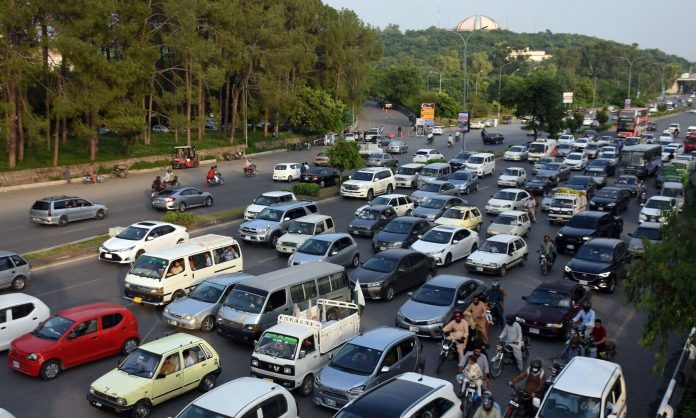Islamabad, the capital city of Pakistan, is increasingly facing daily traffic chaos that is bringing life in the city to a near standstill. Long hours stuck in traffic have become a part of the daily routine for commuters, who face blocked roads, slow-moving vehicles, and poorly managed intersections.
This growing problem is not only frustrating for residents but is also affecting productivity, increasing fuel costs, and reducing the overall quality of life. The city’s traffic woes are compounded by inadequate infrastructure, unplanned urban growth, and a lack of effective traffic management systems.
Rush hours in particular turn key roads into bottlenecks, with public transport options often limited or inefficient. Many citizens have reported spending two to three hours on commutes that should normally take 30 to 40 minutes.
Citizens and local communities are increasingly voicing their frustration and demanding urgent action from the authorities. They are calling for better traffic control measures, investment in public transport, expansion of roads, and implementation of smart traffic solutions to manage peak-hour congestion.
Experts suggest that integrating technology, such as GPS-based traffic monitoring and dedicated lanes for public transport, could help reduce the pressure on the city’s roads.
Authorities have acknowledged the problem, but critics argue that steps taken so far have been slow and insufficient. Residents warn that without immediate intervention, traffic jams will continue to worsen, affecting not only daily life but also the city’s economy and environment.
If Islamabad is to remain a functional and livable capital, urgent, well-planned measures are needed to restore smooth mobility and make commuting safe, efficient, and stress-free for everyone.


